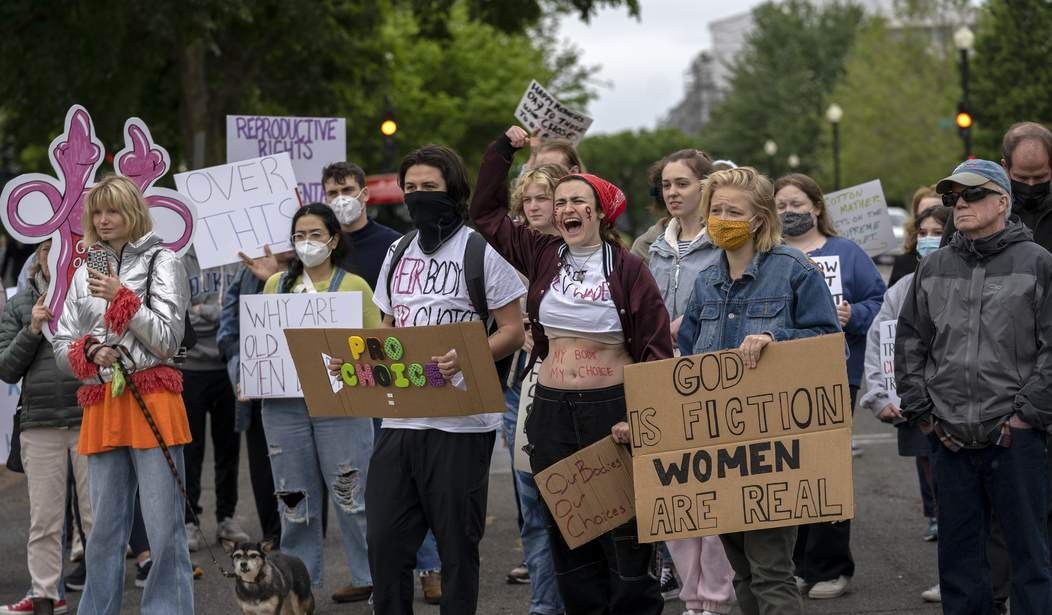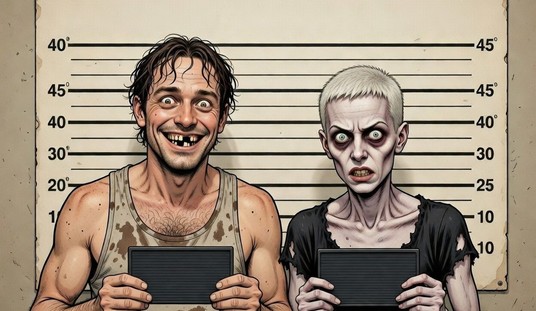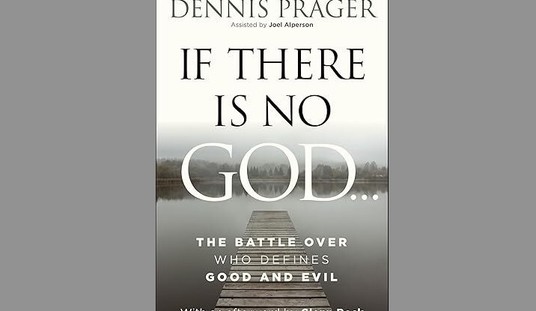The foes of the Dobbs Supreme Court decision overturning Roe v. Wade have resorted to threats, arson and other crimes. Among those crimes are protesting at Supreme Court justices’ homes in Virginia.
Forget about federal law.
It is no surprise that the Biden Justice Department is doing nothing to prosecute those responsible for organizing the protests at the justices’ homes. Not only are prosecutors in the DOJ ambivalent about what is happening, federal law has additional hurdles to prove a case as compared with Virginia law. Namely, the specific intent to intimidate the justices is required for a conviction.
You might think there is a specific intent to do so, but be assured that a 21-year-old female defendant will take the stand and put on a show about how Dobbs represented an intrusion into her womanhood and value as a person and that’s why she protested.
Proving specific intent is a big risk.
Thankfully, Virginia state law has all the tools necessary to prosecute protesters showing up to hassle Supreme Court justices in their homes.
For starters, it is a crime to protest someone at their home in Virginia. There is also a civil cause of action. Namely, one can obtain injunctive relief and punitive damages when a protest occurs at someone’s home. I’ll get to the mechanics in a moment.
First the First Amendment. It is not accurate to say that protesting at someone’s home is protected by the First Amendment. It is true that the First Amendment is implicated, but the First Amendment is not absolute. States may find compelling reasons to prohibit marches in front of a home.
Virginia has done so in Virginia Code Section 18.2-418. This law lays out the legislative purpose of the home protest ban, namely so that anyone may “enjoy in their homes a feeling of well-being, tranquility, and privacy, and when absent from their homes carry with them the sense of security inherent in the assurance that they may return to the enjoyment of their homes.”
Some might surrender and bemoan that Fairfax County – where the Virginia Supreme Court justices live – has a crackpot county prosecutor who won’t enforce the law.
For sure, Fairfax County Commonwealth’s attorney, Steve Descano, is a crime-enabling nut. One of the infamous Soros DAs, Descano has overseen a crime and mayhem spike on his watch. Violence, mayhem, and bail-free release characterize his tenure. Just ten years ago, those charged with reckless driving over 90 miles per hour were well advised to bring their toothbrush to court for a stay in the county jail.
Not anymore. Now Fairfax highways have become raceways, where souped-up Hondas race modified Toyotas on the Beltway at breakneck speed, all without the threat of repercussions, thanks to Descano.
Descano won’t enforce the law because he agrees with the protesters.
That’s where Virginia law, again, has an answer to Descano’s ideologically motivated inaction.
Thankfully, Virginia state officials have the power to do something about the increasingly threatening protests at Supreme Court justices’ homes.
As Hans von Spakovsky has that noted broad power to prosecute crimes – such as illegal protests at the homes of Supreme Court justices – is also shared by the Virginia State Police pursuant to clear Virginia code. Virginia Code 52.8 vests the Virginia Superintendent of State Police with the powers of the local sheriff. In other words, what the Fairfax County Sheriff won’t do because of Descano, the state police can do instead.
Colonel Gary Settle is the superintendent of the Virginia State Police and could oversee both the protection of the Supreme Court justices at their homes as well as the prosecution of any protesters who show up and disrupt the peaceable enjoyment of them.
You might wonder what would happen if Settle refused to enforce the law. Thankfully Virginia also has an answer to that problem too.
Governor Glenn Youngkin has the power specifically in the law to direct Settle and his criminal investigative bureau to enforce the law. “In addition to any other powers and duties which may be provided by statute or otherwise, the Bureau of Criminal Investigation shall conduct an investigation into any matter referred to it by the Governor,” says Virginia Code 52-8.1.
You might then wonder, what then? So what if the Virginia State Police arrest the criminal protesters, nobody will prosecute them.
Not true. Virginia law, once again, comes through. Virginia Code 2.2-511 specifically vests the power in the governor to specifically request the attorney general of Virginia “to institute and conduct to institute or conduct criminal prosecutions in the circuit courts of the Commonwealth.”
If the plot to intimidate and scare the justices in their homes was hatched – say in James City County or another Virginia county – it’s not even certain the case would have to be prosecuted in Fairfax County. Conspiracies are part of the same criminal act, no matter where the act occurs.
All of this is good news. Especially so because the leftist foes of Dobbs are growing increasingly violent, increasingly militant. When justices, or any citizens, can no longer peaceably enjoy their homes, it’s time for courage, not caution. When the law is under attack, the law – and those charged with enforcing it – must reawaken and restore it. If the law is not enforced, more violence, more threats, and more disorder are sure to follow.










Join the conversation as a VIP Member